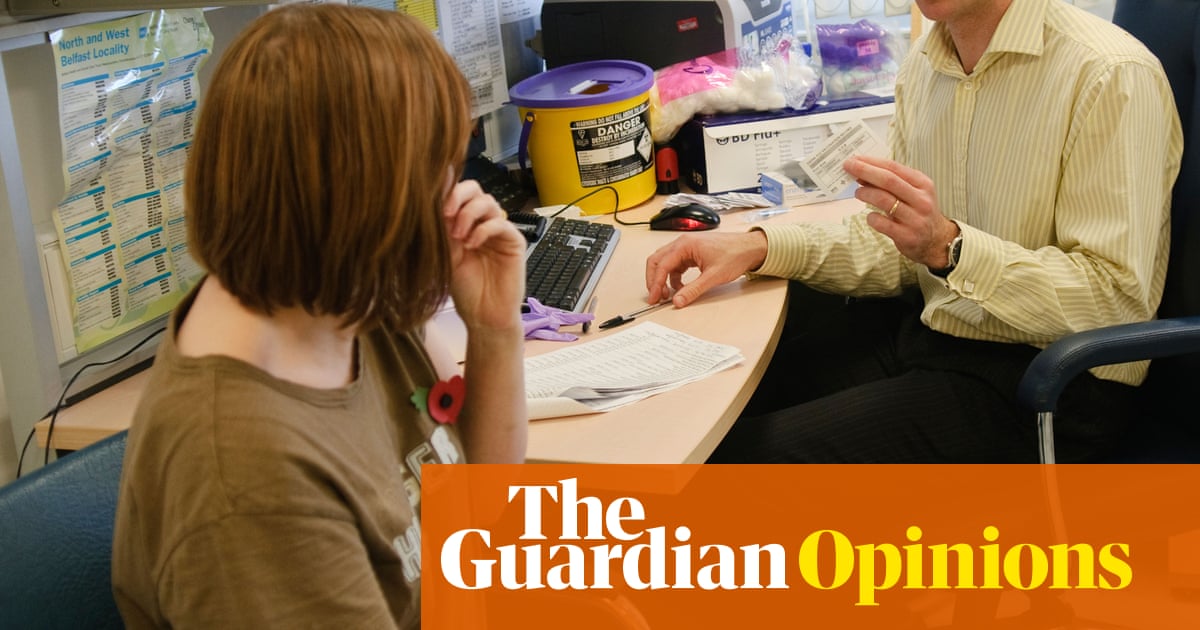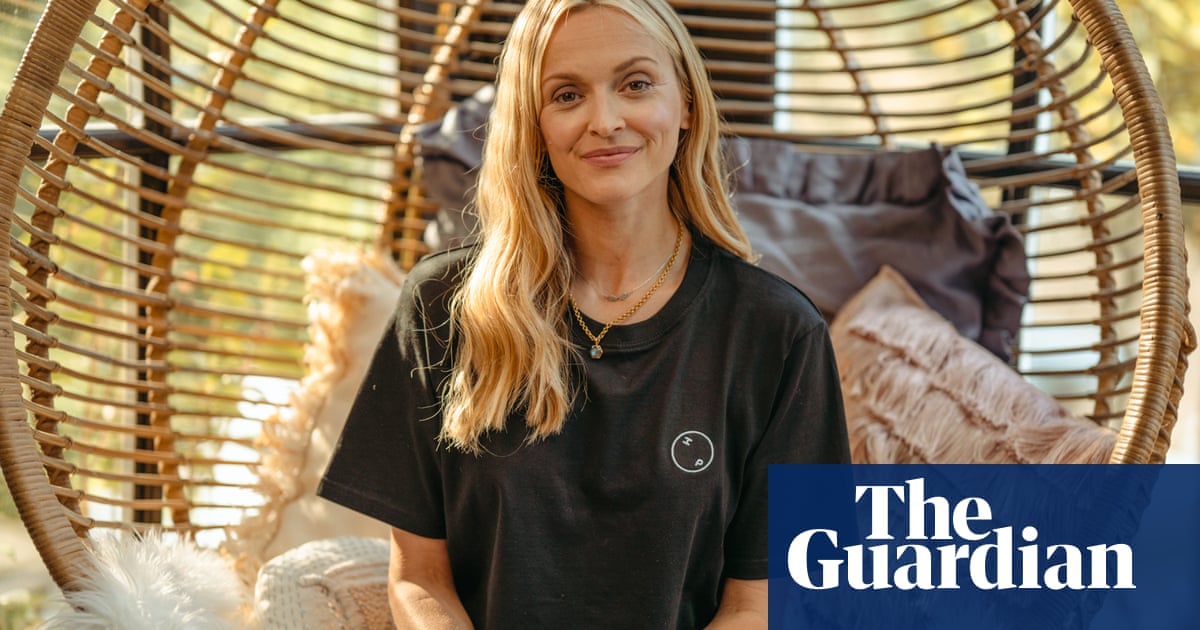
Believe everything, or nothing. Either every single word this woman says must be true, or nothing is. Having raked for weeks through the bitter ashes of Johnny Depp’s brief and frequently ugly marriage to Amber Heard, his counsel, Camille Vasquez, offered the jury hearing the mutual defamation suits only that stark, binary choice: no picking and choosing, no room for ambiguity or complexity or imperfect victims. Either Heard had endured something “truly horrific”, or she was capable of saying absolutely anything. It was a false dichotomy but a ruthless strategy for chiselling away at any lingering doubts in a trial where the two sides’ expert witnesses had repeatedly contradicted each other. And, seemingly, it worked.
On Wednesday the jury of five men and two women reached their bleak conclusion, ruling that the woman we all saw sobbing in the witness box had lied about being a victim of domestic and sexual violence. The jurors had seen mobile phone footage of an enraged Depp smashing his way round the kitchen, and read the texts he sent a friend about wanting to drown or burn Heard and “fuck her burnt corpse”. They watched her break down describing an alleged sexual assault. And seemingly, they believed nothing rather than everything.
“The jury has given me my life back,” said a victorious Depp, awarded $10.35m (£8.25m) in damages over a newspaper article in which his ex-wife called herself a “public figure representing domestic violence”, facing “the full force of our culture’s wrath for women who speak out”.
Heard, who lost her suit but was nonetheless awarded $2m over suggestions from her ex-husband’s lawyer that she and her friends had “roughed up” their apartment to make it look more like a domestic crime scene, was defiant to the end. The verdict, she said, “sets back the clock to a time when a woman who spoke up and spoke out could be publicly shamed and humiliated. It sets back the idea that violence against women is to be taken seriously.” Although only, perhaps, if we accept that dangerous premise Vasquez laid before the jury, with its clever echoes of the unsettling absolutism running through social media culture: that you either #believeallwomen, or treat the lot as liars. For those are not, and never have been, our only options.
Heard pitched herself as an everywoman, a survivor through whose glittering Hollywood prism countless ordinary women’s experiences of abuse could be seen. Her Washington Post article was chiefly arguing for the renewal of a key piece of domestic violence legislation to protect victims. Her legal team warned the jury that in refusing to believe Heard they would effectively be telling women everywhere that they weren’t to be believed either. If she really was lying through her teeth, it would be a terrible, terrible thing Heard had done, not just to Johnny Depp but to all those other women; so terrible, indeed, that many women would find it almost impossible to believe she could have done it.
Sure enough, British domestic violence experts warned even before the verdict emerged that the extraordinary vitriol heaped on Heard on social media was reawakening age-old fears in victims about coming forward. The fear of humiliation and ridicule is never far below the surface. And why wouldn’t it be, when this distressing trial was treated in some quarters like just another light celebrity spat, livestreamed worldwide via YouTube for viewers’ gawping convenience?
Monica Lewinsky, a woman whose own trauma was once similarly mined for public entertainment, dubbed it “courtroom porn” – a form of exploitation in which the voyeuristic viewer is uncomfortably complicit. But still Depp supporters held girls’ nights in to watch it, and on the social media platform TikTok young women mockingly acted out snippets of Heard’s testimony. One of the more brutal surprises of this trial has been how many women, some claiming to be survivors of violence themselves, rallied to the #JusticeForJohnny hashtag alongside men’s rights activists and rightwing shock jocks. Minutes after the jury returned its verdict on Wednesday, meanwhile, the BBC Sport presenter Gary Lineker tweeted an exceptionally poorly judged gag: “Depp wins and gets Heard immunity.”
If there is one glimmer of hope to emerge here, it’s that the small but historically overlooked minority of domestic violence victims who are male might now finally be taken more seriously. Perhaps it’s good news, too, for those rare men on the receiving end of the 3%-6% of rape claims estimated by Home Office research to be false. But it’s potentially even better news for men involved in the other 94%-97%.
Newspapers now understand with chilling clarity the risks they are running by naming wealthy or high-profile men as abusers. Their victims, too, will see that by coming forward they’re risking not just a tidal wave of misogynistic hate – Heard said she was getting daily death threats – but potentially ruinous financial damages.
Heard didn’t name Depp in her carefully constructed Washington Post article, and insisted in court that the piece wasn’t even solely about him. Although she had publicly accused him of abuse following their divorce, she also wrote that “like many women I had been harassed and sexually assaulted by the time I was of college age”, or in other words before she even met him. But that didn’t save her.
Lawyers for the musician Marilyn Manson, who is currently suing his ex-fiancee, Evan Rachel Wood, for defamation after she accused him of physical and sexual abuse, will doubtless be studying this case intensely, but they won’t be alone. This verdict is already being dubbed “the end of #MeToo”, as if no woman telling horrific tales about a powerful man can in future be believed because one was not. Yet it’s profoundly unhealthy to treat one high-profile case as some kind of yardstick by which the rest of humanity should now be judged.
How, then, to stop this verdict reversing all the progress painstakingly made for female survivors of abuse? The answer doesn’t lie in chanting “believe all women”, a mantra implying that the only way of overcoming centuries of misogyny is to treat women alone as above suspicion. It’s a good campaign slogan but a bad fit for a justice system founded on the principle of believing the evidence, even where that sometimes leads in uncomfortable directions.
All women really ask of men – and, arguably, vice versa – is the chance to be heard without prejudice. Whatever did or didn’t happen between Johnny Depp and Amber Heard, right now that modest goal seems ever more tantalisingly out of reach.
Gaby Hinsliff is a Guardian columnist












